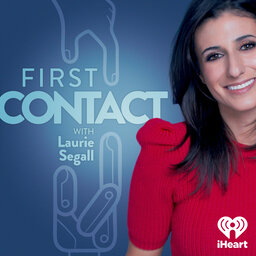Imagine an A.I. Assistant that reads all of your text messages… and turns them into a pile of data points. A human psychology report.
And then it guides you. The assistant can say — “hey, the person you're talking to is introverted. You may want to be a bit delicate when you message them.”
The assistant will tell you the likelihood — down to the percentage — that the person you're texting likes you… in a romantic way.
But you're going to have to give over a lot of your data in exchange. It’s a classic privacy dilemma.
The tech exists. It was created by an entrepreneur named Es Lee and built into an app called Mei. Could AI detect our mood and guide us to communicate better? And what are the ethical issues that come along with tech so personal?
In this episode of First Contact, Laurie and Es talk about what happens when you mix artificial intelligence with raw human emotion
Learn more about your ad-choices at https://www.iheartpodcastnetwork.com
In 1 playlist(s)
First Contact with Laurie Segall
Laurie Segall, Silicon Valley’s go-to reporter and former CNN Senior Tech Correspondent, hosts First…Social links
Follow podcast
Recent clips

Evernote Founder Wants to Save Us from Boring Video Calls
1:23:01

Inside Facebook's Ambitious Plan To Build Out the Next Dimension
1:02:57

Surveillance Tech & Biased AI: The ACLU Fights Back
1:05:24
 First Contact with Laurie Segall
First Contact with Laurie Segall